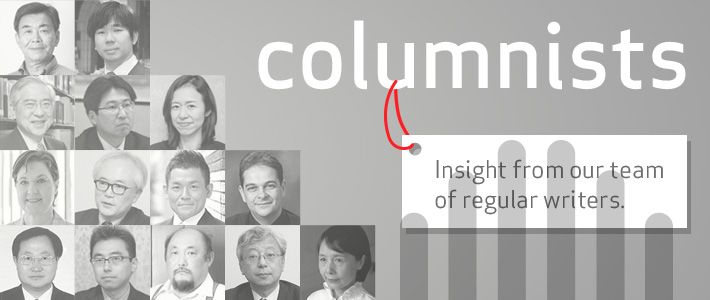
What Lies Ahead for Japanese Jūdō?
Society Culture- English
- 日本語
- 简体字
- 繁體字
- Français
- Español
- العربية
- Русский
The Shaky Future of Jūdō in Japan
Long regarded as the world’s jūdō superpower, a claim sustained by the exploits of Yamashita Yasuhiro, Saitō Hitoshi, and others, “Jūdō Nippon” has faltered, its status threatened by the rise of competitors from Europe, Russia, and Central Asia. The final match between Shinohara Shin’ichi of Japan and David Douillet of France in the men’s over-100-kilograms division at the 2000 Sydney Olympics was emblematic of this trend. Shinohara, the widely anticipated champion, correctly read Douillet’s move to execute an inner thigh throw and subtly adjusted his hold so that both fell to the mat, but the point was awarded to Douillet following a split decision between the chief referee and an assistant referee. Yamashita Yasuhiro, the Japanese head coach, protested, but the decision was allowed to stand. Shinohara was awarded the silver medal, while Douillet became an instant hero in France for besting Shinohara to win the gold. In Japan the referee’s call was considered the error of the century. In an anguished statement following the match, Shinohara manfully blamed himself for the defeat.
In the men’s heavyweight divisions, Shinohara has been succeeded by Inoue Kōsei, Suzuki Keiji, and Ishii Satoshi. All three have been awarded gold medals: Inoue won in the 100-kilogram division at the Sydney Olympics, Suzuki won in the over-100-kilogram division at the 2004 Athens Olympics, and Ishii won in the over-100-kilogram division at the 2008 Beijing Olympics. Japan does not have a powerhouse heavyweight to field in the 2012 London Olympics, however.
Expanding the Ranks and Raising Standards
Instruction in budō (traditional Japanese martial arts), including jūdō, will become part of Japan’s mandatory junior high school curriculum in 2012. According to the Ministry of Education, Culture, Sports, Science, and Technology, this will enable students to understand the traditional ways of thinking inherent to budō, which is regarded as part of Japan’s cultural heritage, and learn respect for the opponent through training and competition, and will also promote the educational goals of passing on traditional culture and fostering a spirit of mutual understanding. Due to a shortage of qualified instructors, however, the prospect of making jūdō part of the health and education curriculum has given rise to safety concerns. In light of these developments, the All Japan Jūdō Federation has decided to introduce a new certification system for jūdō instructors in 2013. In the past, anyone 20 years of age or older who held a black belt could be an instructor. The new system will establish three classes of eligibility for the respective qualifying examinations, ranging from category A, in which a fifth dan (rank) or higher is required, to category C, which requires at least a third dan.
In France, where more people are involved in jūdō than anywhere else in the world—and the sport’s popularity rivals that of soccer—instruction is provided by nationally certified teachers at training facilities established by local communities. Certification as a jūdō instructor, regarded as comparable to a university degree, confers significant status in France, a country where formal credentials are accorded considerable importance. France has produced not only David Douillet, mentioned earlier, but also Teddy Riner, now considered the world’s top heavyweight jūdōka. Riner was the champion in the over-100-kilogram division at the February 2012 Jūdō Grand Slam in Paris, a tournament that did not yield a single Japanese male champion. It would appear that, through coordinated nationwide and the local efforts, France has established an effective system for expanding its field of competitors and raising the level of competition. Although direct comparisons are problematic, there are now as many as 600,000 jūdō enthusiasts in France, compared to only 200,000 in Japan. Whether the introduction of mandatory martial arts training in Japan will lead to greater numbers of jūdō practitioners and a higher level of ability will depend on improvements to the coaching system and achievements over the longer term.
From Partial Points to Ippon
For a time Japanese jūdō suffered from the overemphasis on point-scoring in international competitions. Japanese jūdō has always been imbued with a preference for the well-executed maneuver that delivers the winning point—ippon. To some extent this is only logical: The idea is that even after scoring a half-point, you can still succumb to a decisive move by an opponent and lose the match, so it is important to stay on the attack, looking for a chance to deliver your own ippon. This is logical enough in theory, but in practice it can amount to a heavy-handed dogmatism. At the same time, though, jūdō is undergoing a worldwide shift away from the temporary fixation on point-scoring, toward a reemphasis on victory by ippon. This change is indicated by the abolition of the least valuable partial point, kōka, in 2009.
In a sense jūdō is returning to its roots, and for that very reason the true merits of Japanese jūdō will be put to the test. As it happens, Shinohara Shin'ichi—the silver medalist in Sydney—is now the head coach of the Japanese men’s jūdō team. It will be interesting to see if Shinohara can lead the way for team members to capture the Olympic gold that slipped so painfully through his own fingers back in 2000. (February 13, 2012)
(Originally written in Japanese.)
Japan France Sakai Judo Yamashita Yasuhiro Saitō Hitoshi Shinohara Shin'ichi David Douillet Inoue Kōsei Suzuki Keiji Ishii Satoshi over-100-kilograms division Sydney Olympics All Japan Judo Federation martial arts ippon